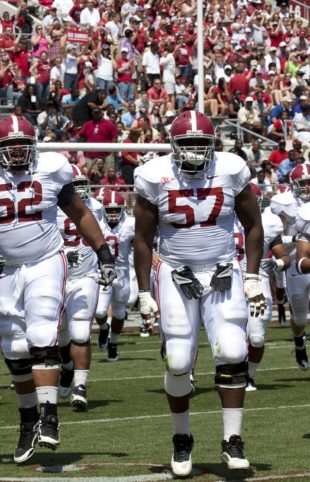
College football is the only major sport, collegiate and professional, that does not have a standard playoff at the end of the season to determine a champion. The creation of the Bowl Championship Series in 1999 was intended to cure some of these problems, by offering up a tiered system of bowl-games that matched equivalently seeded teams against each other, and which matched up – supposedly – the two best teams in the country against one another in the national championship. Yet, this system has been met with significant criticism over the years, particularly from the supporters of teams that have gone undefeated, and yet who have not received an invitation to play in the BCS championship. An undefeated Auburn was denied such a chance in 2004, Boise State’s undefeated 2006 season – which included a win over heavily-favored Oklahoma in the Fiesta Bowl – was not worthy rewarded with a shot at the National Championship, and Utah’s undefeated team in 2009 was also denied a chance. Supporters of these teams and others have argued that a playoff – which would likely take the form of 16 or 8 teams – would give a fairer chance to such teams to demonstrate that they are the rightful national champions. The idea has gained so much support over the years that a bill was drafted in the Senate in 2009 called the College Football Playoffs Act of 2009. President-elect Barack Obama gave support to the idea of an 8-team playoff shortly after his election, saying, “I’m going to throw my weight around a little bit,” Obama said at the time. “I think it’s the right thing to do.” With such support, the idea of a college football playoffs continues to gain momentum with debate becoming increasingly intense. The major arguments and quotations on both side are documented below.
Peter Brown, assistant director of the Quinnipiac University Polling Institute: “College football fans are not in love with the current system in which two teams that play for the national championship are picked by computers, sportswriters and coaches. Settle the question on the field, voters say more than two-to-one.
“I like college football as an entity more than I like knowing who is (supposedly) ‘the best’ amateur football team in the United States. People used to bemoan the thought of a mythical national champion, but it all seems mythical to me. It still does, and it always will. I don’t need to pretend that I know the unknowable. If you want a playoff system, it might just mean you want to feel as though football has a clear sense of order. You probably enjoy feeling as though you know who is No. 1, because that’s what really matters to you. But maybe you like college football as an experience a little less than you think.”
“I have chosen the 16-team format for one reason and one reason alone. FAIRNESS, something that has long been neglected by the NCAA for Division I-A Football Bowl Subdivision football. You see, the whole idea of the BCS basically limits any real chance at any kind of a fair chance for 45 of the 120 Division I-A college football programs in 2009. With 65 teams in BCS Conferences and over 90% of the BCS Bowl Game bids (and the $17 million payout for playing in those games, win or lose), the deck is stacked against the non-BCS teams in the WAC, Mountain West, MAC, Conference USA & Sun Belt. Add in the whole Notre Dame special name recognition and money clause and the deal is even more corrupt.”
George Will: “The BCS virtually guarantees that the rich get richer — and get the television exposure that attracts blue-chip recruits.”
“don’t say the regular season is a playoff. I think Boise State and Utah might disagree with you. […] Remember them? The ones who both had undefeated seasons yet didn’t get to play for the championship?”
“Any playoff system requires a cutoff that leaves a single team out. The wider the net, the more arbitrary that cutoff becomes (requiring ever more complicated tie-breaker rules).”
“An 8-team playoff gives an arguably weaker team the chance to defeat a squad that was much better during the regular season. That may make for enjoyable entertainment, but it is definitely unfair in its way.”
Sam Herrell, a Texas high school coach, said to the New York Times in December of 2008: “You know, I coach high school football in Texas, and every year there’s only one team that ends up happy in your classification. You go the playoffs, the first round, the second round, the quarterfinals — oh how exciting for everyone. But you look at it, as soon as one of those teams gets beat, they’re just forgotten. Now I know people say how much it works for basketball, but I think football is different. Is it really better for the kids to have a playoff or for at least half of them to go to a bowl game and say, ‘We won the Gator Bowl, the Cotton Bowl, whatever bowl.'”
To access the second half of this Issue Report Login or Buy Issue Report
To access the second half of all Issue Reports Login or Subscribe Now